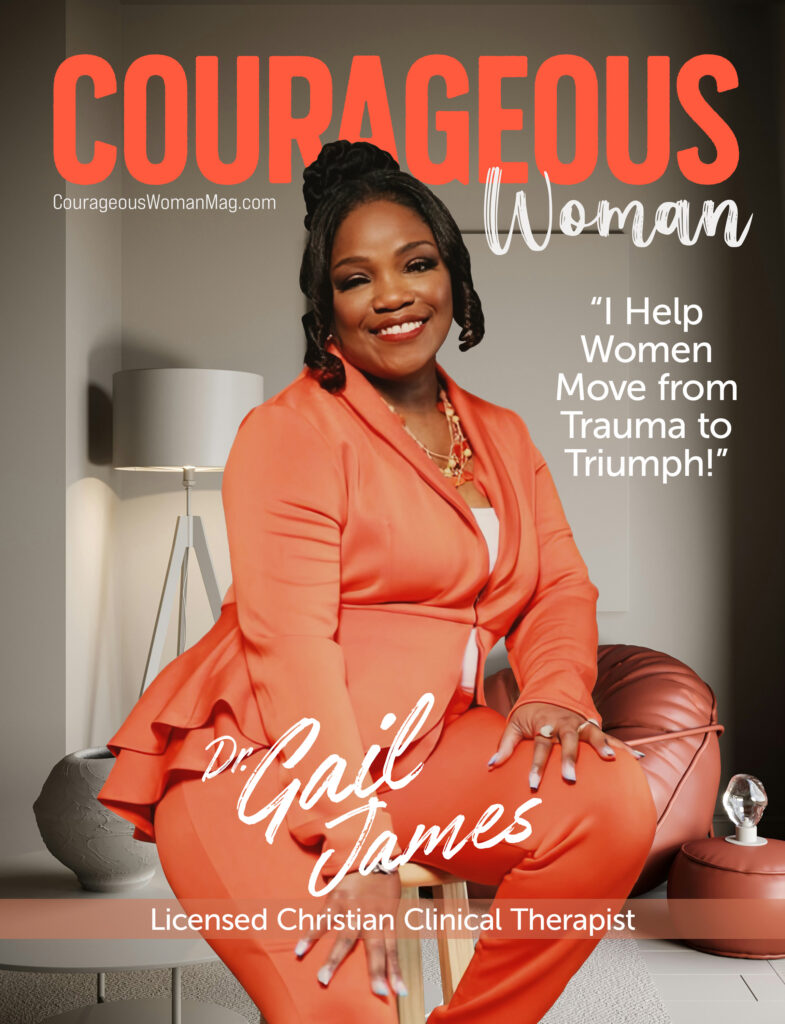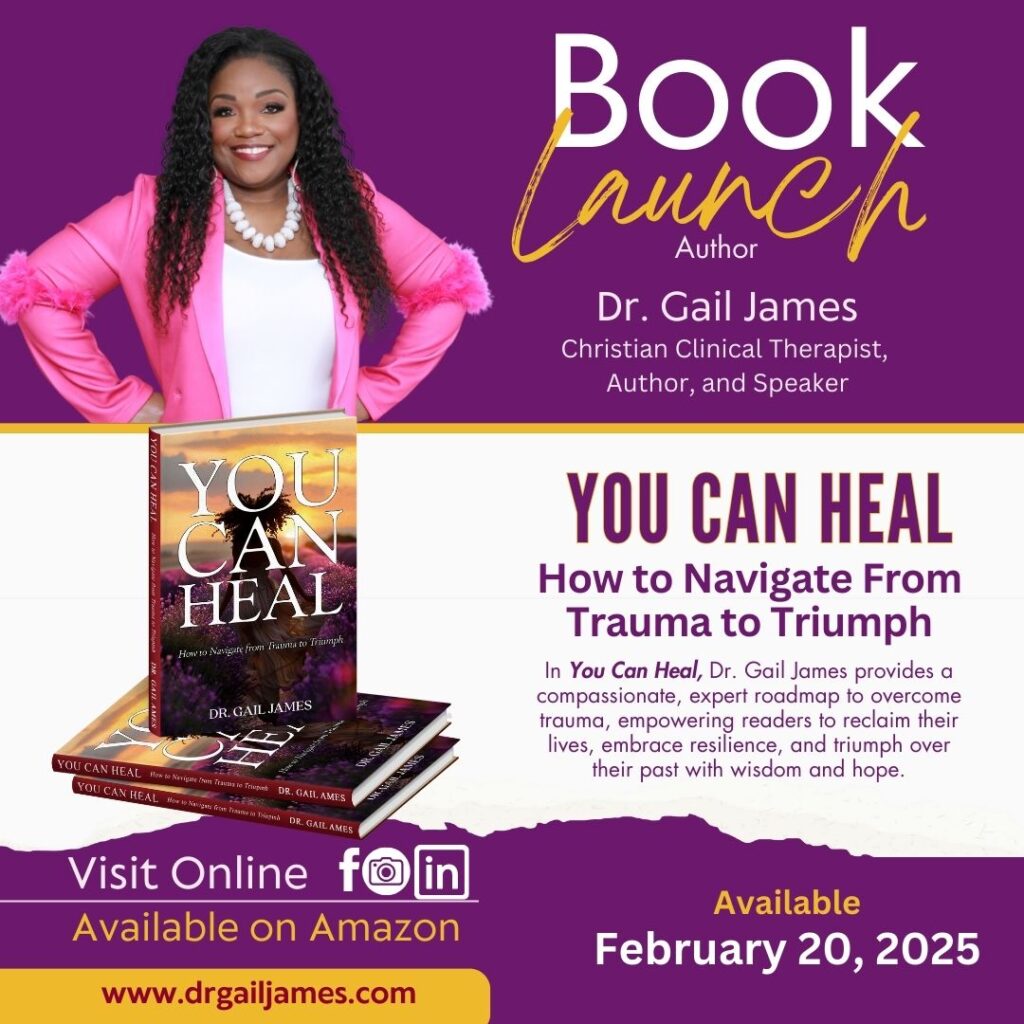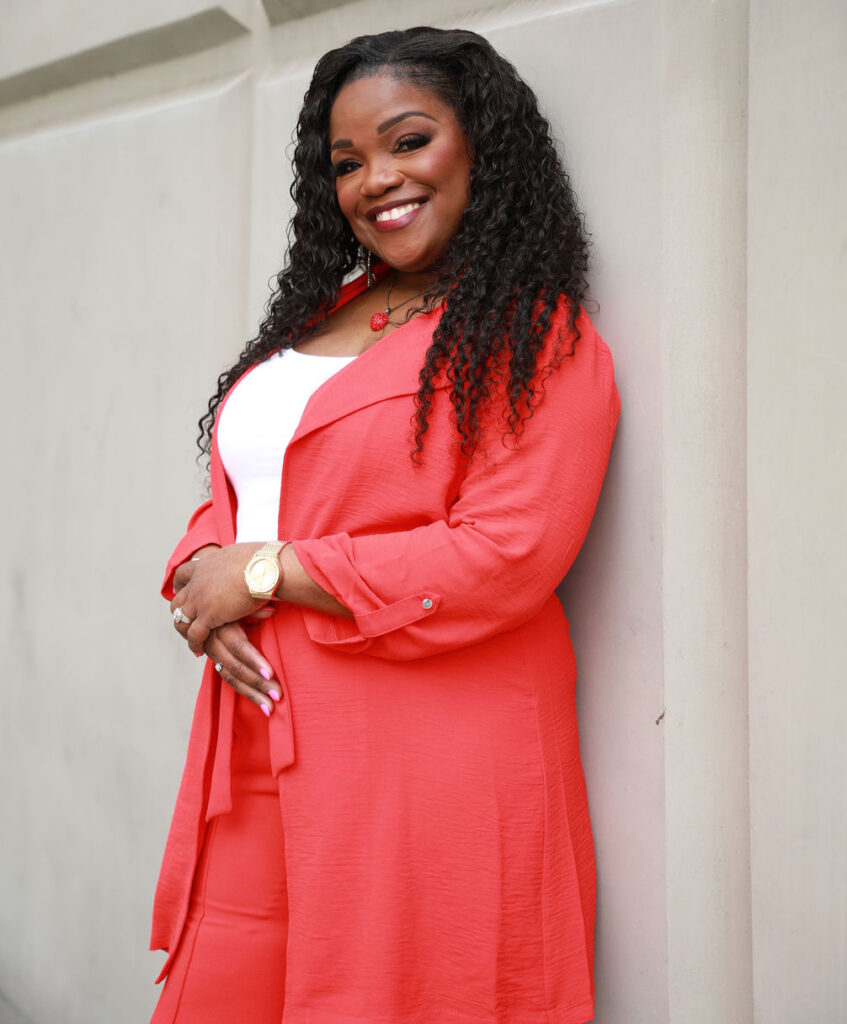
Today, we are honored to speak with Dr. Gail James, a renowned clinical therapist, motivational speaker, pastor, and author of the powerful new book You Can Heal: Navigating From Trauma to Triumph. With a passion for helping survivors transform their pain into purpose, Dr. James combines her clinical expertise, faith-based approach, and personal experiences to guide others on their healing journey. In this conversation, she shares insights from her book, offers practical tools for overcoming trauma, and inspires us with stories of resilience and triumph.
Your new book, You Can Heal: Navigating From Trauma to Triumph, offers a transformative guide for overcoming trauma. What inspired you to write this book at this stage of your journey?
I was inspired to write this book because of the traumatic experiences I’ve been through. I wanted to encourage and educate others, showing them that healing is possible while also providing key steps to help them achieve it.
You describe trauma as “a lingering emotional shadow.” How do you define healing, and what are the first steps someone can take toward reclaiming their life after trauma?
Healing is the process of recovering mentally, physically, and emotionally from experiences or people that have caused trauma. It is about regaining control over your life and beginning to feel whole again.
In your book, you mention that healing is not a straight line. Can you share a success story from your practice that illustrates the power of resilience and triumph?
I had a client who was traumatized by years of sexual abuse from two of her brothers. She kept this secret for many years, which resulted in low self-esteem, poor choices in friendships and relationships, and a lack of boundaries—allowing others to mistreat her.
She attended counseling for about six months. During our sessions, I taught her how to protect her peace from toxic individuals, including friends and family, by establishing healthy boundaries. I showed her how to express her authentic feelings when someone hurt her. I also encouraged her to journal her thoughts and emotions to release them from her mind and prevent rumination.
Most importantly, I taught her the value of self-love, embracing her flaws, and practicing self-care. Over time, she rebuilt her relationship with her family by expressing the pain they had caused and setting clear boundaries. Today, she prioritizes her peace and well-being, knowing it’s okay to say “no” and to put herself first. Although she is no longer in counseling, she occasionally reaches out to share updates on her progress.
Many trauma survivors struggle with shame or self-doubt. What are some practical tools or affirmations you recommend for readers to combat these feelings?
To release shame, I encourage readers to practice self-compassion. Self-compassion is closely linked to increased well-being, resilience, and happiness. It is an effective tool to counteract perfectionism and self-judgment.
To overcome self-doubt, I advise readers to:
You are a licensed clinical therapist, motivational speaker, pastor, and founder of several empowering organizations. How do your roles intersect and influence your approach to trauma recovery?
My roles intersect because they are all rooted in my personal experience with trauma. The severe trauma I endured led me to become a licensed therapist so that I could help others navigate similar experiences. It also inspired me to create a nonprofit agency to support individuals who have suffered trauma.
Through my journey, I learned that unresolved trauma often causes us to hurt others unintentionally. I choose to be the person for others that I needed when I was going through my own healing process. My faith, personal experiences, and professional training all come together to help me guide others from trauma to triumph.

Congratulations on earning prestigious pageant titles, including Mrs. International Woman of Achievement. How have these experiences shaped your advocacy work and contributed to your healing message?
Thank you. These experiences have allowed me to travel and speak to women who have experienced trauma and struggled with self-doubt. I encourage them and remind them that they are not defined by their experiences. My message is: No matter what you’ve been through, you can overcome. You can be victorious. Don’t sell yourself short—believe in yourself.
With a Ph.D. in Christian counseling, faith plays a significant role in your work. How does spirituality help survivors navigate their journey from trauma to triumph?
It is impossible to overcome, heal, and find hope and joy again without the Lord. When the Lord is our foundation, there is nothing we cannot overcome. The Bible says it is impossible to please God without faith. It also states, “I can do all things through Christ who strengthens me” (Philippians 4:13). With these scriptures as our foundation, we acknowledge that we are not on this journey alone, and with Him on our side, everything will work out for our good.
What message of hope do you offer to readers who may feel that healing is impossible because of the depth of their pain?
Nothing is too hard for God. Healing is achievable, but you must put in the work. God is the only one who can turn your sorrow into laughter, your pain into joy, and your heartache into healing. No matter what you’ve been through, God can transform your pain into purpose and your trauma into triumph—if you believe and commit to your healing journey.

Through your work at Sanctuary of Change and Xtraordinary Services 4 Xtraordinary People Agency, you’ve empowered countless survivors. What advice would you give women who want to advocate for others facing similar struggles?
I would advise them to ensure they are healed first. Otherwise, they risk retraumatizing others by unintentionally bleeding on them from their own unhealed wounds. It’s true that hurt people hurt people. Unhealed individuals may also struggle to recognize the difference between those who have come into their lives to help them and those who intend to harm them.
To effectively help others, you must understand the difference between empathy and sympathy:
Knowing when to practice empathy instead of sympathy is crucial for providing meaningful and effective support.
What lasting impact do you hope You Can Heal will have on readers and the world?
I want readers to know that they, too, can heal from any traumatic experience they’ve endured. I hope they understand that neither someone else’s opinion of them nor their past experiences define their future or their reality. Healing is possible, and their past does not have to dictate their destiny.
How can readers connect with you?
Readers can connect with me by visiting my website at www.drgailjames.com and completing a contact form. They can also reach me via email at drgailjames@gmail.com.
READ HER PRESS RELEASE
Join the thriving community of Courageous Woman Magazine. We have been dedicated to empowering women in business for over 14 years. Don’t hesitate to step into the spotlight! Courageous Woman Magazine is here to illuminate and showcase your brand, products, and services, helping you reach a wider audience!

